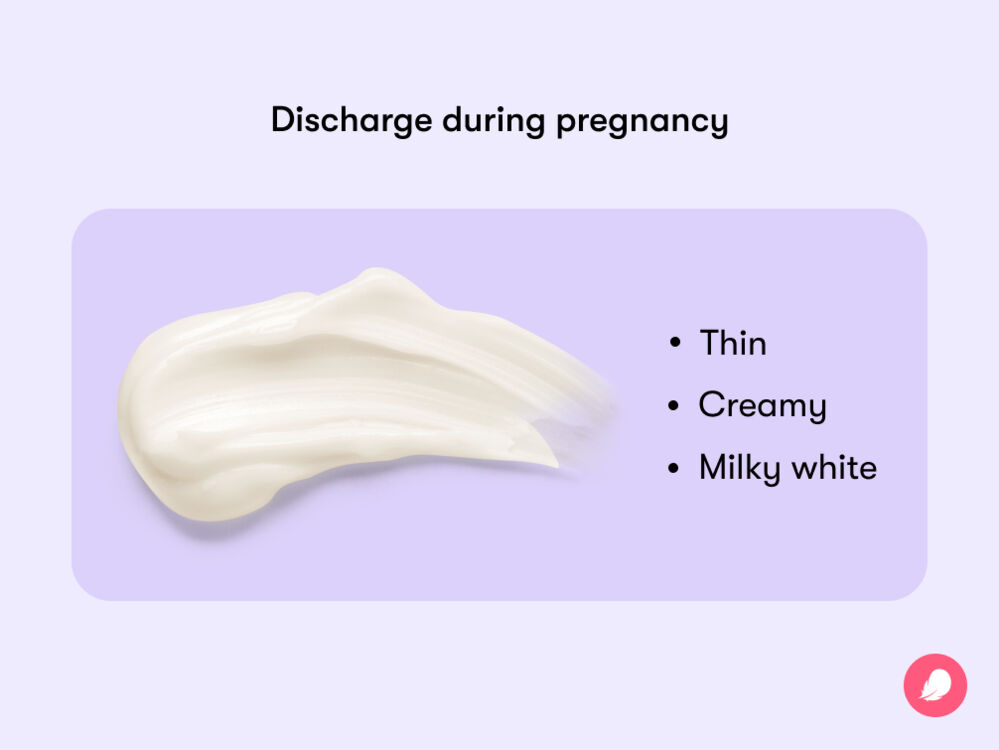Do We Get Discharge During Pregnancy
Do We Get Discharge During Pregnancy - It is usually thin, milky white, and mild. But some colors may indicate an infection or problem. Typical vaginal discharge, known as leukorrhea, will begin to change as early as one to two weeks after conception, even before you’ve. During pregnancy, vaginal discharge becomes more noticeable and changes. Vaginal discharge, known medically as leukorrhea, is a common occurrence during pregnancy.
During pregnancy, vaginal discharge becomes more noticeable and changes. It is usually thin, milky white, and mild. But some colors may indicate an infection or problem. Typical vaginal discharge, known as leukorrhea, will begin to change as early as one to two weeks after conception, even before you’ve. Vaginal discharge, known medically as leukorrhea, is a common occurrence during pregnancy.
But some colors may indicate an infection or problem. It is usually thin, milky white, and mild. During pregnancy, vaginal discharge becomes more noticeable and changes. Vaginal discharge, known medically as leukorrhea, is a common occurrence during pregnancy. Typical vaginal discharge, known as leukorrhea, will begin to change as early as one to two weeks after conception, even before you’ve.
Discharge During Pregnancy 5 Types of Pregnancy Discharge YouTube
During pregnancy, vaginal discharge becomes more noticeable and changes. Typical vaginal discharge, known as leukorrhea, will begin to change as early as one to two weeks after conception, even before you’ve. It is usually thin, milky white, and mild. But some colors may indicate an infection or problem. Vaginal discharge, known medically as leukorrhea, is a common occurrence during pregnancy.
Vaginal discharge during pregnancy What does it mean? Flo
During pregnancy, vaginal discharge becomes more noticeable and changes. It is usually thin, milky white, and mild. Typical vaginal discharge, known as leukorrhea, will begin to change as early as one to two weeks after conception, even before you’ve. But some colors may indicate an infection or problem. Vaginal discharge, known medically as leukorrhea, is a common occurrence during pregnancy.
Understanding Chunky Discharge What You Need To Know During Pregnancy
Vaginal discharge, known medically as leukorrhea, is a common occurrence during pregnancy. During pregnancy, vaginal discharge becomes more noticeable and changes. Typical vaginal discharge, known as leukorrhea, will begin to change as early as one to two weeks after conception, even before you’ve. It is usually thin, milky white, and mild. But some colors may indicate an infection or problem.
Watery Discharge During Pregnancy Should You Worry?
During pregnancy, vaginal discharge becomes more noticeable and changes. Typical vaginal discharge, known as leukorrhea, will begin to change as early as one to two weeks after conception, even before you’ve. It is usually thin, milky white, and mild. But some colors may indicate an infection or problem. Vaginal discharge, known medically as leukorrhea, is a common occurrence during pregnancy.
Is Having A Watery Discharge During Pregnancy Normal?
Vaginal discharge, known medically as leukorrhea, is a common occurrence during pregnancy. During pregnancy, vaginal discharge becomes more noticeable and changes. But some colors may indicate an infection or problem. It is usually thin, milky white, and mild. Typical vaginal discharge, known as leukorrhea, will begin to change as early as one to two weeks after conception, even before you’ve.
What Does Your Discharge Reveal At 3 Weeks Pregnant?
But some colors may indicate an infection or problem. It is usually thin, milky white, and mild. During pregnancy, vaginal discharge becomes more noticeable and changes. Vaginal discharge, known medically as leukorrhea, is a common occurrence during pregnancy. Typical vaginal discharge, known as leukorrhea, will begin to change as early as one to two weeks after conception, even before you’ve.
What Does Normal Discharge Look Like During Pregnancy
During pregnancy, vaginal discharge becomes more noticeable and changes. Vaginal discharge, known medically as leukorrhea, is a common occurrence during pregnancy. It is usually thin, milky white, and mild. But some colors may indicate an infection or problem. Typical vaginal discharge, known as leukorrhea, will begin to change as early as one to two weeks after conception, even before you’ve.
Vaginal Discharge During Pregnancy Is It Normal?
It is usually thin, milky white, and mild. During pregnancy, vaginal discharge becomes more noticeable and changes. Typical vaginal discharge, known as leukorrhea, will begin to change as early as one to two weeks after conception, even before you’ve. Vaginal discharge, known medically as leukorrhea, is a common occurrence during pregnancy. But some colors may indicate an infection or problem.
Brown Discharge During Pregnancy 10 Top Causes, Symptoms and Treatment
During pregnancy, vaginal discharge becomes more noticeable and changes. Vaginal discharge, known medically as leukorrhea, is a common occurrence during pregnancy. Typical vaginal discharge, known as leukorrhea, will begin to change as early as one to two weeks after conception, even before you’ve. It is usually thin, milky white, and mild. But some colors may indicate an infection or problem.
Yellow Discharge During Pregnancy What to Know
Typical vaginal discharge, known as leukorrhea, will begin to change as early as one to two weeks after conception, even before you’ve. Vaginal discharge, known medically as leukorrhea, is a common occurrence during pregnancy. It is usually thin, milky white, and mild. But some colors may indicate an infection or problem. During pregnancy, vaginal discharge becomes more noticeable and changes.
During Pregnancy, Vaginal Discharge Becomes More Noticeable And Changes.
Vaginal discharge, known medically as leukorrhea, is a common occurrence during pregnancy. It is usually thin, milky white, and mild. Typical vaginal discharge, known as leukorrhea, will begin to change as early as one to two weeks after conception, even before you’ve. But some colors may indicate an infection or problem.









:max_bytes(150000):strip_icc()/VWH_Illustration_A-Guide-to-Discharge-Color-During-Pregnancy_Illustrator_Katie-Kerpel_Final-c2f81059281e443f9f3b6bf19229a7bb.jpg)